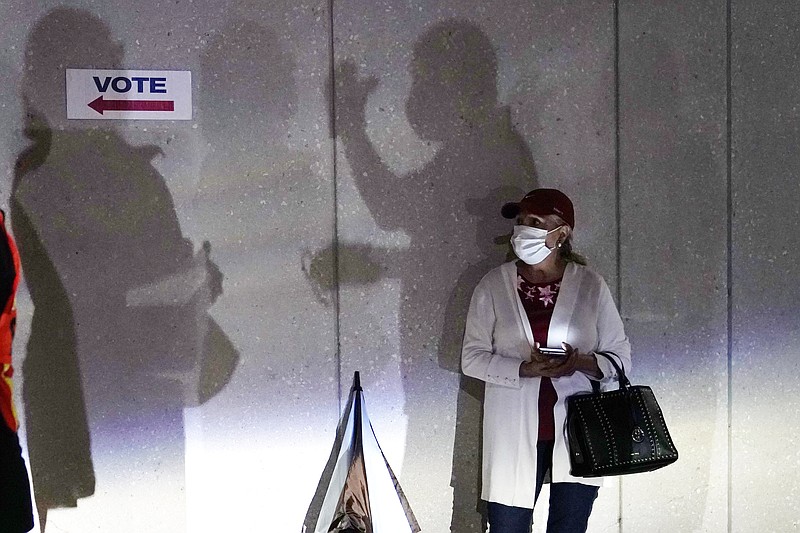BOISE, Idaho -- Voting-rights advocates and state officials are on high alert over fears that U.S. polling stations could attract the same strain of partisan violence and civil unrest that broke out on American streets this year, fueled by a deadly pandemic and anger over police brutality.
Protests against racial injustice and covid-19 lockdowns in recent months have often become violent. Paramilitary group members are accused of plotting to kidnap Michigan's governor.
While gun-rights advocates say fears of violence at the polls are unfounded, the toxic political atmosphere has some worried it will keep voters from the polls and affect the election.
President Donald Trump has called for an army of "poll watchers" to go to the polls and "watch carefully." Monitoring the votes at polling places is allowed in most states, but rules vary and it's not a free-for-all. States have established rules, in part, to avoid any hint that observers will harass or intimidate voters.
Some states and groups are preparing for that possibility.
In Minnesota, two advocacy groups have sued after a Tennessee-based company placed ads seeking military veterans to provide armed security at polling places and to provide security after the election to protect businesses and residents from "looting and destruction."
On Friday, New York City Mayor Bill de Blasio announced that a team of hundreds of civilians will spread out across the city to report any instance of voter intimidation. Philadelphia District Attorney Larry Krasner opened a hot line that rings directly to his office's prosecutors, who will send detectives to investigate reports of voter suppression or intimidation.
In Ohio, the League of Women Voters has been recruiting and training "peacekeeper teams" of clergy and social workers to deescalate any tensions at the polls. So far, 125 people have signed up.
"The thought is that when people see ministers with their clergy collars on, or with their stoles, people who are concerned about violence are more apt to be comforted -- and the ones who might perpetrate the violence might maybe pull back little bit," said the Rev. Dr. Susan K. Smith, one of the program trainers.
In Arizona, a coalition of voting-rights groups has formed to dispatch volunteers trained to combat voter intimidation and misinformation efforts. The group, Election Protection Arizona, hopes to train 200 people to deploy to polls on Election Day and 100 more to monitor social media.
"Our poll volunteers are there to ensure everyone's right to vote is protected regardless of who they are voting for," Muna Hijazi, the group's organizing director, said during a call with reporters this month.
Federal and state law enforcement officials are expanding preparations for the possibility of widespread unrest at the polls. FBI and local officials in several states have been conducting drills and setting up command centers.
Only six states plus the District of Columbia expressly prohibit carrying a firearm or other deadly weapon to a polling place. Some other states ban carrying a firearm concealed but have no such restrictions on openly carrying a handgun or long gun. Federal law bans firearms at schools, so polling places at those are off limits.
Concerns about voter intimidation are particularly pronounced in battleground states. In Michigan, Secretary of State Jocelyn Benson issued a directive reminding state elections clerks that firearms cannot be openly carried at the polls.
"Fair, free and secure elections are the foundation of our democracy," Benson said.
Gun rights activists say fears of violence at the polls are unfounded and stoked by a leftist agenda.
"This sounds like a lot of fear-mongering by gun haters. They are always predicting that violence is going to break out. But like Chicken Little, they are always wrong," said Erich Pratt, senior vice president at Gun Owners of America.
False alarms, like one in Florida, may be inevitable: Pinellas County Sheriff Bob Gualtieri held a news briefing on Thursday to knock down rumors of voter intimidation in the county. After a uniformed security guard stopped at an early polling site after work to pick up a relative, at least one local TV station reported it as an intimidation effort.
Gualtieri said the guard wasn't part of any campaign and didn't engage with any voter.
Information for this article was contributed by Julie Carr Smyth, Astrid Galvan and Claudia Lauer of The Associated Press.

